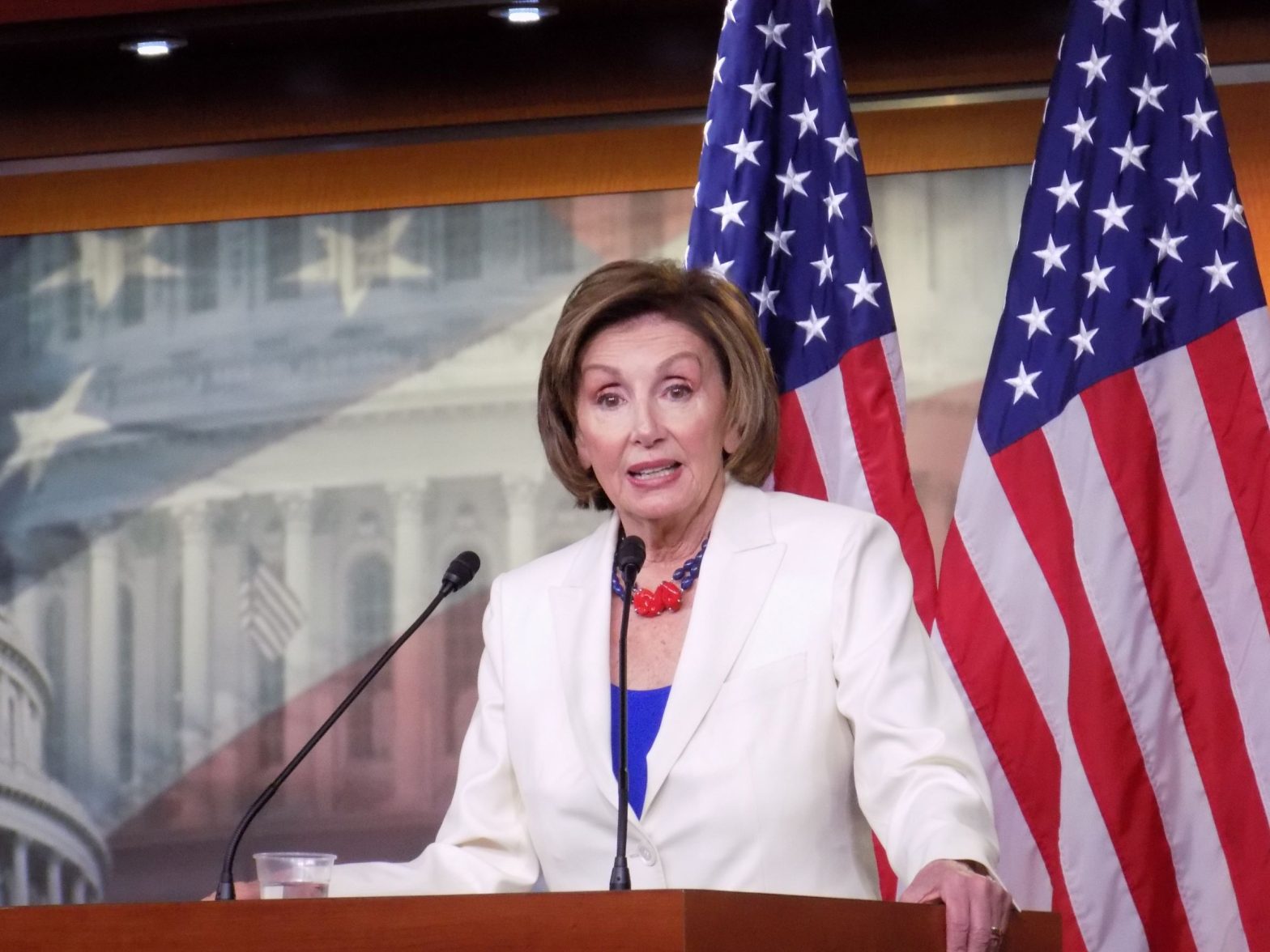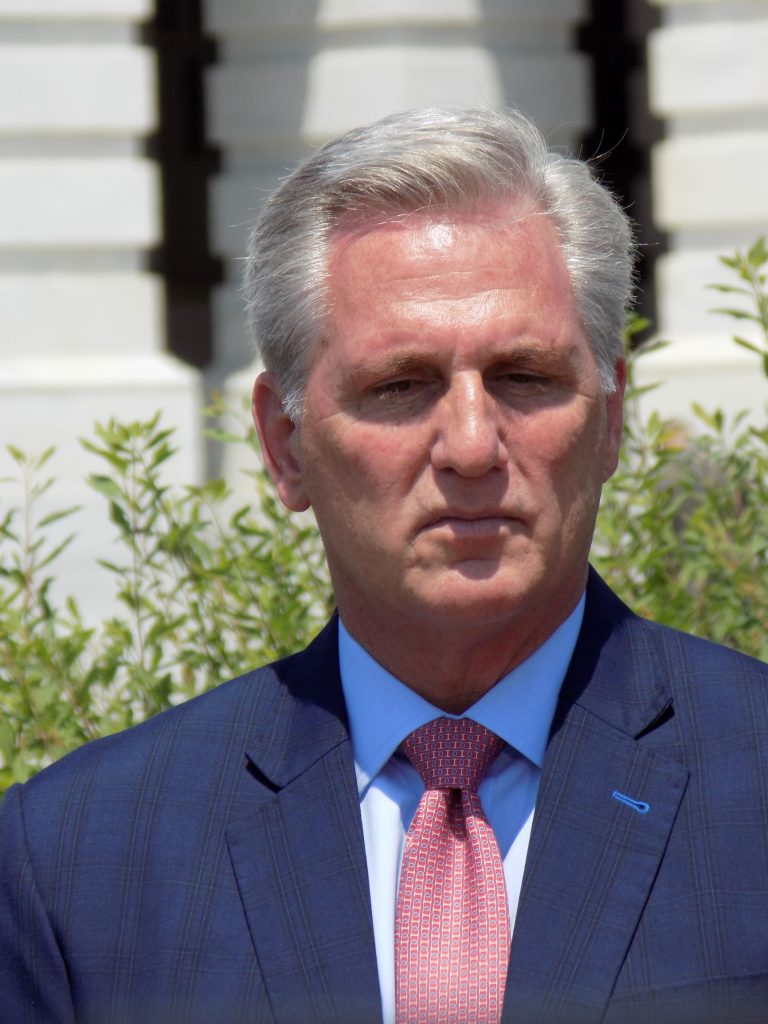House Approves $1.9 Billion to Fortify Capitol

WASHINGTON – The House on Thursday narrowly approved spending $1.9 billion to fortify the U.S. Capitol in the wake of Jan. 6 siege by violent supporters of former President Donald Trump.
Among other things the measure, which passed 213-212, will fund the construction of a retractable fence around the Capitol and the creation of a quick-response force to quell any future uprising on Capitol Hill.
The vote came as House leaders continued to bicker over the creation of an independent commission to investigate the uprising on the Hill, the most violent domestic attack in history.
On Wednesday, the House approved creating the commission, with 35 Republicans joining Democrats in a bid to advance the inquiry.
Asked about the Republican defections at her weekly press conference on Thursday, House Speaker Nancy Pelosi quipped “it’s not my job to analyze the Republican party.”
“All I’d say to my Republican friends — and I do have them — is take your party back,” Pelosi said. “This is the Grand Old Party, a party that has done so much for our country and, quite frankly, many Republicans have courageously withstood this, shall we say, assault on our Democracy.
“Yesterday we saw strong bipartisan support for an independent commission to establish the truth of what happened in January,” she said. “Americans deserve an objective and accurate account of what happened.
“It’s time to set aside partisan politics and come together as Americans,” she added.
But House Republican Leader Kevin McCarthy said it was the Democrats who are playing politics, suggesting they want to use the commission’s findings as a cudgel with which to lambast GOP candidates during the mid-terms.

Asked how it felt to have 35 of his members vote with the Democrats, McCarthy said he thought the number would actually be higher.
When asked if he’d be willing to testify, under oath, about his relationship with Donald Trump, McCarthy answered “sure.”
He also resisted any assertion that Republicans tried to stall the process of creating a commission at any time.
“I asked her to come up with a proposal in January. And at the time, she said, four months,” he said, referring to Pelosi.
“Since then we’ve had four committees conduct an investigation into what happened. We’ve had the Architect of the Capitol working on it. We’ve had the Justice Department looking into it. I mean, which study group would you like to join?”
Pelosi’s rejoinder to that critique is that it took 14 months to establish the independent commission on the Sept. 11, 2001 terror attacks, and that committee investigations were conducted prior to its existence as well.
“The 9/11 Commission took advantage of that committee work, and this commission will do the same,” she said.
“Let’s just hope that we can have the clarity of a bipartisan commission with high level national leaders on it,” she added.
McCarthy then reiterated earlier comments he’d made, saying he believes the inquiry is too limited in scope, and that it should be opened up to look at other violence that happened across the U.S. last year.
When a reporter challenged McCarthy on whether the language of the commission bill actually does preclude looking into other violent acts, McCarthy said it did, and told the reporter that if he disagreed, then he also had a disagreement with the Republican’s general council.
“I gave language to Speaker Pelosi that we would find acceptable — I sent her two different letters and she would never communicate at all,” he said.
Both bills — the bill establishing the Jan. 6 Commission and Thursday’s, fortifying the Capitol, have an uncertain future in the evenly divided Senate.
Pelosi, however, appeared to suggest she thinks the bills just might garner enough support to squeak through.
“I would like to have trust that the Senate wants to find the truth as well,” she said.
If they don’t, Pelosi could choose to appoint a special select committee on the Capitol Hill riot, but said on Thursday, she’d prefer to keep her options open and continued to push for the current commission proposal.
“Let’s just give them a chance to [consider] it without holding something over them,” she said.
The supplemental spending bill passed Thursday provides $520.9 million to reimburse the National Guard; $66.8 million to reimburse the District of Columbia; and additional funding to reimburse other federal agencies for direct costs incurred as a result of the violent attack on the Capitol.
The bill also provides Capitol Police $43.9 million for overtime pay, retention bonuses, equipment replacement, and wellness and trauma support.
The bill includes $39.5 million in funding for prosecuting the perpetrators of the insurrection, and it also provides $529.7 million to address future security needs which include hardening windows and doors and installing new cameras.
In addition to creating a “Quick Reaction Force” to augment Capitol Police during emergencies, the bill provides for enhanced security for members of Congress and federal judges, and provides specialized training for Capitol Police.
The bill also provides funding to the Architect of the Capitol, the House of Representatives, the Library of Congress, the GPO, the Capitol Police, and the CBO for expenses incurred by the legislative branch due to the COVID-19 pandemic.























